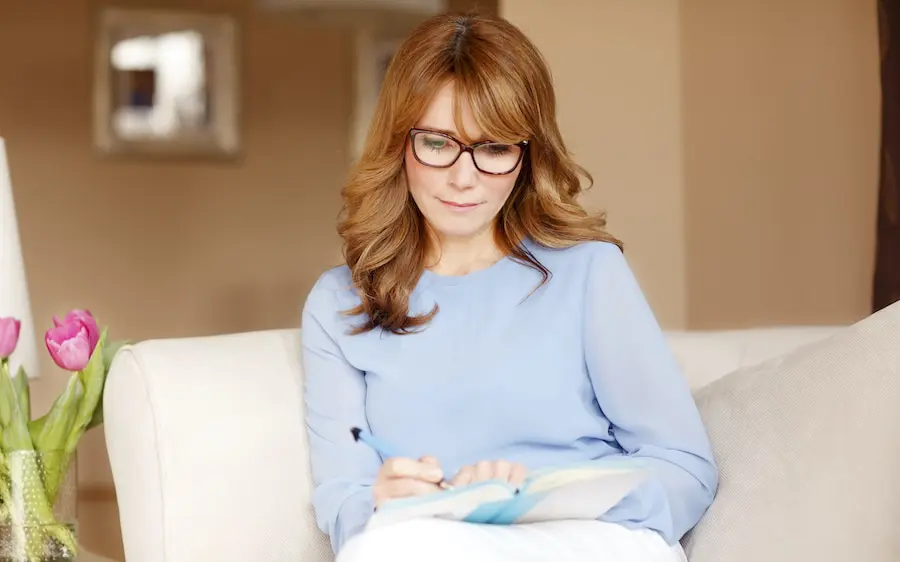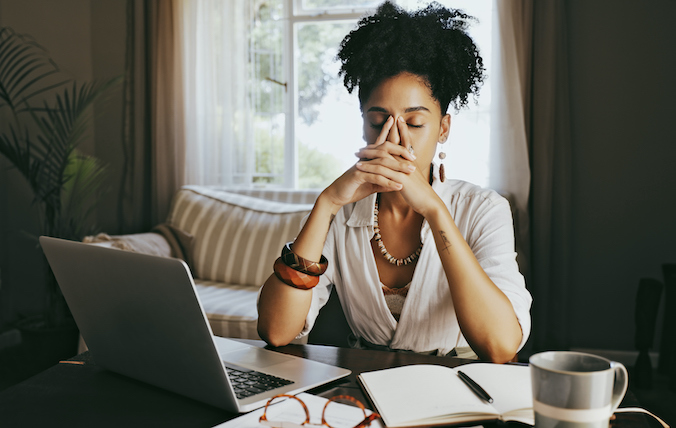How to reduce anxiety at home – try these simple techniques

Due to the current global pandemic (and the disruption it’s caused), this World Mental Health Day has never been timelier. How can we reduce anxiety, when everything’s uncertain and we have 24/7-access to negative news thanks to our smartphones, it can be tough not to feel anxious or depressed – especially if you’re spending most of your time indoors. In a recent study by the charity Mind, more than half of adults and over two thirds of young people said that their mental health had worsened during the period of lockdown restrictions, from early April to mid-May.
So how can we ease the tide of anxiety and look after our emotional? You probably have heard of mindfulness as a useful tool where this is concerned. Mindfulness techniques can help us stay in the present rather than fret about the future or dwell on the past. According to the NHS, daily practise of living in the present moment and tuning into thoughts and feelings can help us enjoy life better – and experience better mental health as a result.
But being more mindful doesn’t mean retreating from life and going off to live in a monastery. It doesn’t even require you leaving the house at all! There are many simple practises you can fit in around your day-to-day life to help you feel more grounded. Here are five easy ones to try.
Deep breathing
Focused breathing is one of the easiest exercises for when anxiety next takes hold (and you can do it practically anywhere!). When you go into a panic, your body releases adrenaline, which makes your heart start to race. Deeply inhale for six seconds as you fill your lungs with air, and then slowly breathe out for ten. If you can, do this lying down, with one hand on your heart, the other on your stomach. Repeat this ten times. Slowing down your breathing makes your body release more carbon dioxide, which then slows down your heart rate, making you automatically feel calmer.
Anchoring
This is a good technique to reduce anxiety if you’re sitting at your desk, before you flip open your laptop to start checking your emails. Take a few minutes to focus on the lower half of your body. Think about how your feet feel planted on the floor. Then move your attention to your legs – do they feel heavy or light? You can even combine this with the above breathing exercise if you’re feeling particularly anxious.
Focus on each of your senses
Focusing on all of our senses is a really good way to really notice what’s around us and stay in the present. Next time you cook your favourite meal, make a note of what you can smell, what you can hear and savour how it looks and tastes when you eventually serve it up. Or, if the weather’s nice, you could be taking a slow walk outside, looking up at the sky or feeling the sun on your skin. Paying more attention to your current surroundings can really pay off when it comes to feeling calmer.
Journaling
If constant worrying is affecting your sleep, jotting things down on paper before bed is a good way to offload, so that you’re more likely to nod off. Plus, once your worries are written down in front of you, they can appear less daunting and you can look at them from an outsider’s perspective. (E.g. what advice would you give if it were somebody else having these thoughts instead of you?).Here’s a link to getting started with a journal.
Take brief pauses between tasks
When you’ve got a lot of work on, it can be easy to go on ‘autopilot’ and not really focus on what you’re doing (especially if certain tasks are quite repetitive). But taking time to reflect and pause throughout the day can really help you to feel more grounded and connected to life. Don’t immediately reach for your phone as soon as you wake up. Before you step on the treadmill, do some gentle stretches. Inhale deeply before you take your first sip of coffee. And your mental health will benefit as a result.
Read more on how to reduce anxiety by spending 5 minutes ‘you time’ each day.
If you think you might be suffering from severe mental health issues, then seek medical advice or call the Samaritans for free on 116 123.






